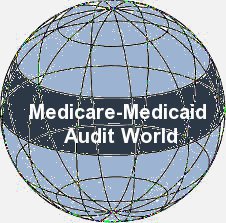 Often overlooked in performance evaluations of the various contractors employed by the Medicare program to ensure program integrity, is the cost incurred by providers in responding to contractor requests for information related to billed claims and provider costs in appealing improper contractor denials. In light of the ongoing debate about whether reduced Medicare payments mandated by the Patient Protection and Affordable Care Act will drive providers from the Medicare program, an analysis of the administrative costs incurred by providers as the result of Medicare program integrity activity is in order.
Often overlooked in performance evaluations of the various contractors employed by the Medicare program to ensure program integrity, is the cost incurred by providers in responding to contractor requests for information related to billed claims and provider costs in appealing improper contractor denials. In light of the ongoing debate about whether reduced Medicare payments mandated by the Patient Protection and Affordable Care Act will drive providers from the Medicare program, an analysis of the administrative costs incurred by providers as the result of Medicare program integrity activity is in order.
 With the exception of the data collected by the American Hospital Association (AHA) through its RAC Trac initiative, I am not aware of any other data tracking administrative costs incurred by providers in connection with Medicare program integrity activities. As far as I know there is no aggregate data of the costs incurred by any identified group of Medicare providers in connection with pre and post payment reviews conducted by the MACs or the costs incurred by Medicare providers in responding to document or other information requests by ZPICs or their PSC predecessors.
With the exception of the data collected by the American Hospital Association (AHA) through its RAC Trac initiative, I am not aware of any other data tracking administrative costs incurred by providers in connection with Medicare program integrity activities. As far as I know there is no aggregate data of the costs incurred by any identified group of Medicare providers in connection with pre and post payment reviews conducted by the MACs or the costs incurred by Medicare providers in responding to document or other information requests by ZPICs or their PSC predecessors.
The RAC Trac Data
According to the American Hospital Directory, there are about 4,219 hospitals in the United States. About 2,200 of those hospitals provided data to the AHA during the first half of 2012 on the costs associated with RAC activities. About 75% of the hospitals reported that RAC activity had some impact on their operations, the single largest impact being increased administrative costs. Approximately 45% of the hospitals spent less than $3,300 per month because of RAC audits while about 8% of the hospitals spent over $33,300 per month on RAC activities. In terms of employee time, the hospitals reported that about 315 hours of employee time per month was devoted to RAC activities. In addition to internal costs, the hospitals reported that they spent about $33,000 per month on external resources required to address RAC issues. The AHA report on the RAC Trac survey data for the 1st quarter of 2012 is available here, and the 2nd quarter results are available here.
Continue Reading ›
 Medicare-Medicaid Audit World
Medicare-Medicaid Audit World








